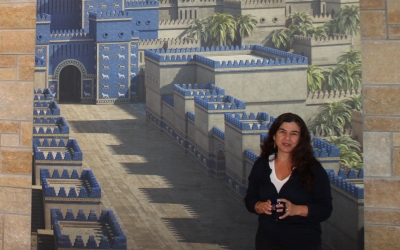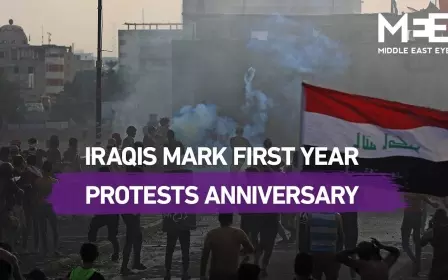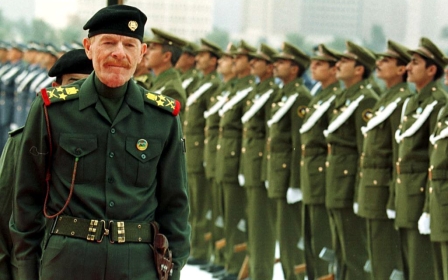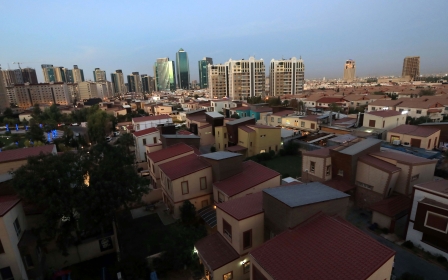Iraqi women's activists slam second-marriage loans for encouraging polygamy
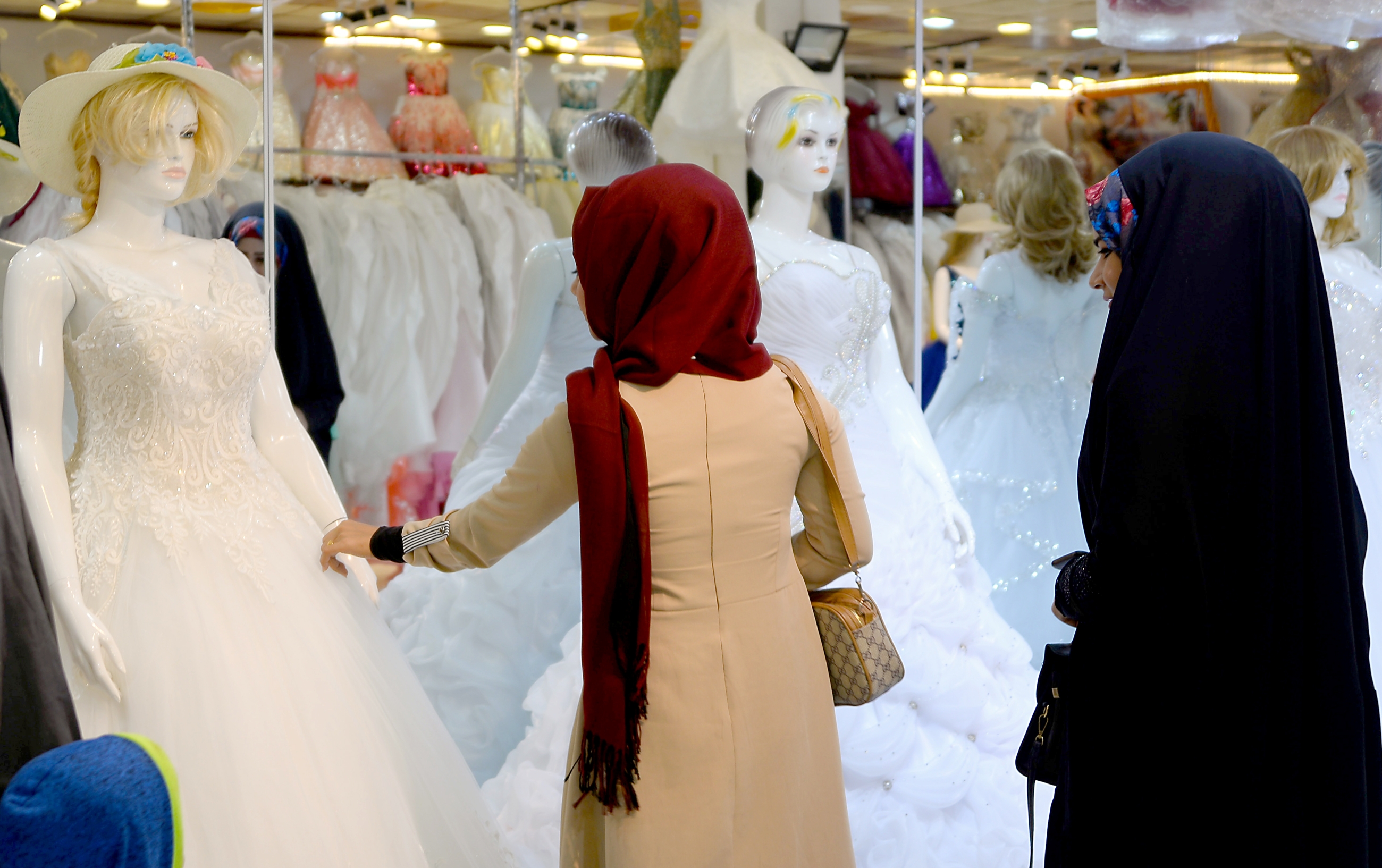
A move by one of Iraq's largest banks to offer loans to civil servants for second marriages has been condemned by lawmakers and women's rights activists as promoting polygamy.
With the government passing through a deep financial crisis and nearly a month behind in paying public sector salaries, the state-owned Rashid Bank on Wednesday announced it was offering a 10m dinar ($8,389) loan to government employees - either men or women - for the purpose of arranging a second marriage. The loan is to be paid back in five years, with an interest rate of six per cent.
In a statement, the bank said the loan was for "employees who are divorced and widowed and want to marry for the second time," adding that those applying "should not have previously availed of marriage finance, and must have at least two years in service".
Although the bank said the loan was aimed at the divorced and widowed, some have suggested the scheme will incentivise polygamous marriages.
Polygamy is legal in Iraq, though rare, with less than 2 percent of people living in polygamous households, according to a 2019 Pew Research report.
New MEE newsletter: Jerusalem Dispatch
Sign up to get the latest insights and analysis on Israel-Palestine, alongside Turkey Unpacked and other MEE newsletters
Nevertheless, activists have raised concerns about the scheme.
'It is shameful that such a statement comes from a respectable government bank... women are not a commodity to be displayed or sold'
- Hanan Al-Fatlawi, political advisor
"Marriage is a sacred process, but the bank's second-marriage loan might encourage some people to exploit women until they receive the sum, or prompt poor families or relatives of the widowed to force them to marry men who have another wife just for the sake of getting the 10 million dinars," Srud Ahmed, head of the Iraqi Al-Amal Association Kirkuk office told MEE.
Ahmed said that it could also incentivise divorce in some cases.
She also noted that the second-marriage loan would not deal with the issue of thousands of Iraqi widows who needed jobs and projects in order to be able to raise their children.
Iraq has millions of widows as a result of wars with Iran and Kuwait as well as due to internal conflicts.
According to a survey by the Iraqi planning ministry in 2016, nearly two million Iraqi women were widowed or divorced. The bank has said its second-marriage loan was in response to increasing demands.
However, Rezan Sheikh Dler, a Kurdish lawmaker in the Iraqi parliament, told MEE in a phone interview said the government should be employing the women by offering loans for small-business projects, not giving them loans in order to encourage them to "buy a man" and said she had asked Iraqi Prime Minister Mustafa al-Kadhimi to intervene to remove the offer.
Hanan Al-Fatlawi, an adviser to Kadhimi on women's affairs, has already tweeted her condemnation of the loans.
"It is shameful that such a statement comes from a respectable government bank... women are not a commodity to be displayed or sold," she tweeted.
Wrong priorities
Iraq's 1959 Personal Status law, introduced by the left-wing president Abd al-Karim Qasim, heavily restricted the ability of men to take more than one wife, requiring the permission of a judge, proof of the husband's financial capability, and a justification such as the inability of his first wife to bear children.
In 2017, lawmaker Jamila al-Obeidi advocated for the government to offer financial incentives for husbands to take multiple wives as a means of dealing with the growing number of widows in the country a result of Iraq's many conflicts.
With Iraq's economy in freefall, however, some politicians and economists in Iraq have argued the marriage loan is a misapplication of ever dwindling funds.
Dler said that the loan turned "women into commodities".
"In a country like Iraq the conditions for polygamy are very simple," she said.
"Iraq's circumstances are very hard; the government should prioritise finding jobs and paying loans for the youth."
The United Nations Development Programme in its October report on the impact of the Covid-19 pandemic on the Iraqi economy warned that the country's gross domestic product was expected to fall by nearly 10 percent in 2020, while the fiscal deficit was forecast to reach the unprecedented level of nearly 30 percent of GDP in 2020.
Economists caution that the loan will have serious negative implications on Iraq's rentier economy, which is already shrinking due to the international oil price decline.
"The offer will lead to pouring a lot of Iraqi dinars into the market and boosting the demand on marriage needs; therefore it will increase inflation, drop the purchase power as well as the price of the Iraqi dinar versus the US dollar," Khalid Haider, professor of economy at the University of Sulaimani told MEE.
"If the bank had to offer the loans for working-age youths and engage them in small-businesses, I think it would be better than just a second-marriage loan and eventually be more advantageous for the Iraqi community."
Speaking to MEE, Rashid Bank's spokeswoman, Amal al-Shuwaili, said the loan scheme came as a result of increasing demand from both male and female divorcees and widows.
"We are neither promoting nor forbidding the second wife - this is not related to our duties. Social media pages have created such uproar and misunderstanding," she said.
She pointed out that government employees now have low incomes and the costs of marriage are too high. She added that the source of the bank's capital was deposits from the rich, clarifying that the bank has nothing to do with paying salaries to government employees.
This article is available in French on Middle East Eye French edition.
Middle East Eye delivers independent and unrivalled coverage and analysis of the Middle East, North Africa and beyond. To learn more about republishing this content and the associated fees, please fill out this form. More about MEE can be found here.


